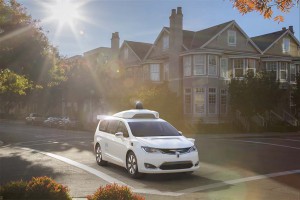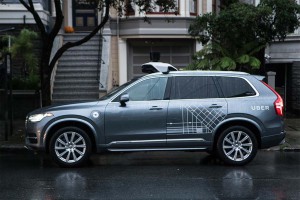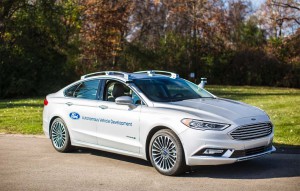As they move closer to bringing autonomous and fully driverless vehicles to market, automakers and tech firms such as General Motors, Ford, Waymo and Tesla are pressing the federal government to loosen up regulations limiting the way they can test their prototypes on public roads.
Even before the Obama Administration concluded its second term, the feds were working up new autonomous guidelines. But now, under the Trump Administration, it appears Congress could give the auto industry even more freedom to move forward while limiting the power of both individual states and even federal safety regulators.
Congress wants to “continue working with all parties in a bipartisan manner as we refine language and move forward towards a consensus package,” said U.S. Representative Bob Latta, chairman of a panel that oversees automotive regulations.
Both the GOP and Democrats have been talking about making this a bipartisan effort and, earlier this week, three U.S. senators reached across the aisle to announce plans to remove regulatory barriers many on the automotive side contend limit the pace of autonomous vehicle development.
Currently, individual states must authorize testing on their local roads – and about a half-dozen, including California, Michigan, Arizona and Florida have done so – though others, such as Texas, have said existing rules permit testing as is.
During hearings on Capitol Hill on Wednesday, industry officials said such a piecemeal approach is creating what one described as an undue burden.
Republicans in control of Congress appear to be taking a lead in pulling together the new rules and are following the less-is-more approach laid out by Pres. Donald Trump. A draft package pulling together 14 individual bills would give industry a much freer hand to test and even begin marketing self-driving vehicles.
One proposal would essentially strip the states of the ability to block public testing, allowing them only to set insurance and registration rules. Another would permit the U.S. Department of Transportation to completely exempt up to 100,000 vehicles a year from federal motor vehicle safety rules, up from the current 2,500. Among other things, that would permit the sale of completely driverless vehicles that have no traditional controls, such as steering wheels and pedals, according to a report by the Reuter’s news service.
Rebecca Lindland, an analyst with KelleyBlueBook, called the Republican-led effort “a victory for autonomous vehicle developers,” since it “facilitates real world testing of the technology, key to socializing self-driving vehicles.”
The rapid expansion is raising flags among safety advocates, however, especially one of the bills proposing that any data collected by autonomous vehicles being tested on public roads be treated as “confidential business information,” and not subject to public scrutiny.
Among those putting up resistance to the new autonomous bill package is California’s Consumer Watchdog, which has frequently criticized existing public testing of autonomous vehicles.
In a new report, the non-profit cautioned that even at the current pace of testing, autonomous vehicles “introduce a new set of risks (which) will necessarily be far broader than those posed by vehicles today.” In a letter to Congress, the group warned that legislators should not get “lost in the hyperbole over robot cars.”
For her part, Transportation Secretary Elaine Chao seemed to be searching for a middle-ground position when, earlier this week, she said automakers and other companies working on autonomous technology must be forthcoming with information about their programs so the government can make a rational decision that will enhance public trust.
Chao echoed the position of her Obama Administration predecessor Anthony Foxx by stressing the potential benefits of autonomous vehicles – including a sharp decline in crashes, injuries and fatalities, as well as the reduction of traffic congestion.
But even though proponents of the technology want to enable the industry to move forward more quickly, they remain well aware of the challenges they face winning over public support for autonomous and fully driverless vehicles. Most recent studies find a majority of Americans skeptical about riding in hands-free vehicles, especially those without someone behind the wheel, ready to take over in an emergency.
The headlines that followed several recent crashes, including a fatal incident in Florida in May 2016 involving a semi-autonomous Tesla Model S, underscores the potential backlash that could occur if a flood of new self-driving cars can’t live up to the promise of being safer than today’s manned automobiles.



